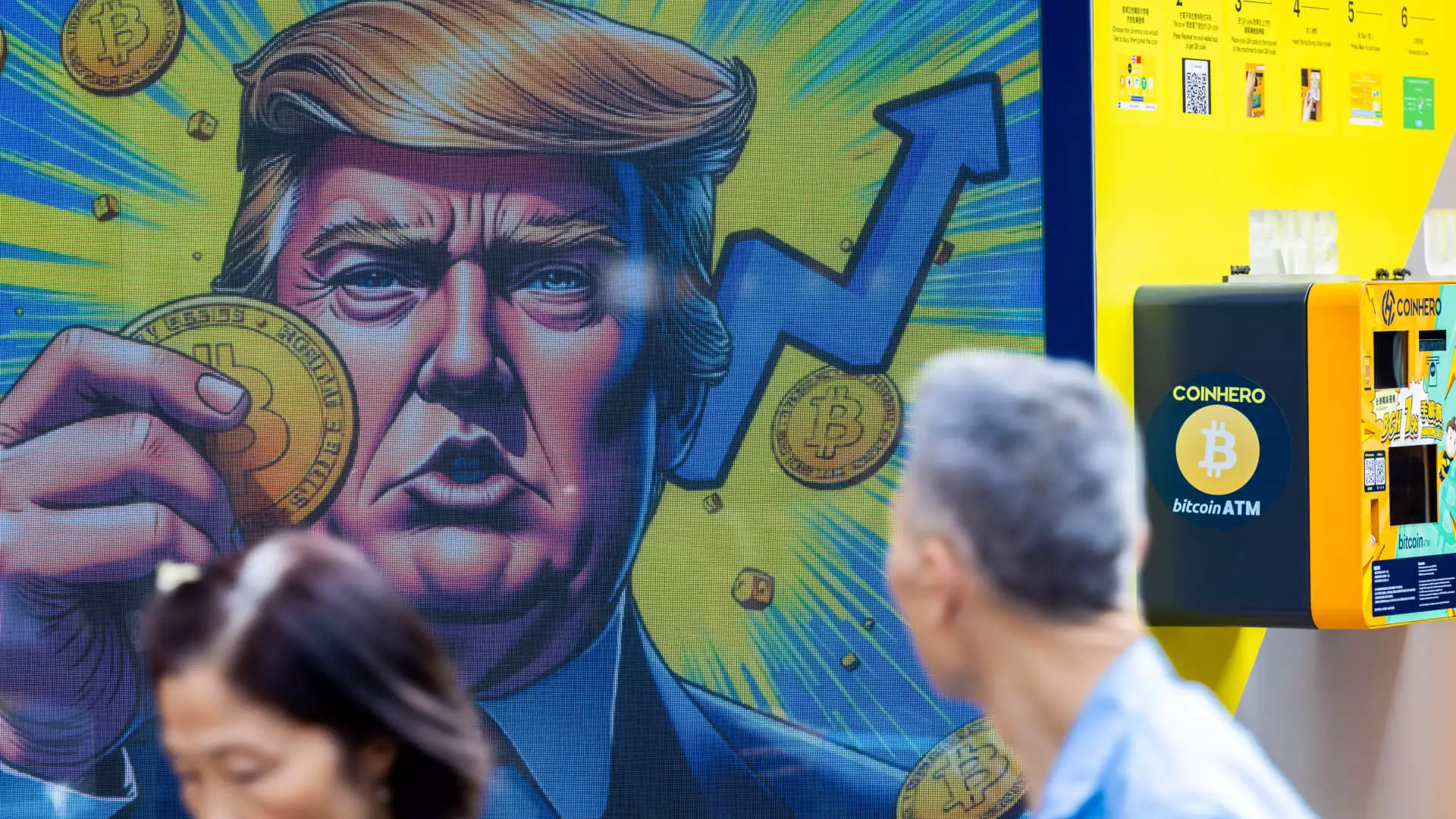In the rapidly evolving landscape of cryptocurrency, the recent emergence of the $TRUMP token shines as a particularly provocative case. Just days back, the token’s value surged dramatically by over 50%, elevating its market capitalization to approximately $2.7 billion. This rally was significantly propelled by an announcement aimed at enticing top holders—namely, an exclusive dinner with President Donald Trump. Such a promotional strategy conjures images of traditional political fundraising yet introduces a striking digital twist, leveraging both presidential allure and memecoin culture to create a multifaceted revenue stream.
As the marketplace buzzes with activity, it’s clear that this development is not just another mere crypto event; it symbolizes the unsettling intersection of politics and commerce. Enthusiastic supporters and wary skeptics alike should take note of how this project is redefining the parameters of financial ethics within the political realm.
From Political Currency to Real Currency: The $TRUMP Token Mechanics
One of the most notable aspects of the $TRUMP token is its designed mechanism that allocates a percentage of every transaction to wallets controlled by the project’s founders, linked directly to the Trump Organization. This creates an operational cycle where trading fees amounting to over $324.5 million have been generated since the token’s inception in January. Such percentages suggest not merely a speculative asset, but also a direct economic benefit for those at the helm of the project.
However, these operational realities raise ethical flags akin to allegations of “pay-for-play” politics, where access to a former president becomes a commodity. Critics argue this arrangement reflects a disturbing trend, where traditional access to political figures is commodified. The convergence of memecoin hype and the allure of an invitation to dine with a sitting president illustrates a new financial model in politics—one that transforms exclusivity and influence into a tradable good.
Critique from Detractors: An Ethical Quagmire
The reaction to Trump’s latest venture has been predictably polarized. Prominent voices like Senators Chris Murphy, Elizabeth Warren, and Adam Schiff have asserted that the promotional dinner blurs the line between financial legitimacy and corrupt activity. Their calls for an investigation by the U.S. Office of Government Ethics echo a larger sentiment that challenges the moral obligations of elected officials regarding personal gains through political influence. With the proposal that Trump’s actions represent an unprecedented breach of ethical norms, the conversation shifts from mere skepticism to a robust challenge against the broader implications of such behavior.
Many of these critics contend that the capital amassed through this enterprise reflects a worrying normalization of corrupt practices. With the spectrum of legality being unevenly applied—given that criminal conflicts of interest statutes do not directly bind the presidency—the question arises: what ethical framework remains for those in positions of unparalleled power?
A Proponent of Innovation or Corruption in Disguise?
Interestingly, Trump’s pivot towards cryptocurrency in the 2024 election cycle lays bare an intriguing contradiction. Initially opposed to digital currencies, his current campaign positions him as a champion of innovation, with the narrative that Democrats inherently stifle growth through regulation. This creates a marketing edge that appeals to a generational cohort invested in digital currencies—a demographic that played a substantial role in funding his campaign initiatives. The allure of aligning with a specific industry is undeniable; however, it does shine a light on the commodification of influence, aligned more with profit than public service.
Even more concerning is the structural foundation of the $TRUMP token, which couples a tangible token sale with virtually nonexistent utility. Investors are barred from selling their tokens and receive no proportional profit share. The lack of transparency creates an environment ripe for skepticism. The ongoing narrative then becomes not just about wealth generation, but about whether the public can trust a leader who positions their financial enterprise ahead of conventional ethical standards.
The Future Landscape of Political Fundraising
The $TRUMP token phenomenon stands as a sign of changing tides in political fundraising, where traditional methods of access and influence are increasingly entwined with speculative financial assets. While this model may yield short-term gains for a select few, questions linger about its long-term effects on democracy and governance. What does it say about political engagement when a mere cryptocurrency can entitle an individual to intimate access with leaders?
This kaleidoscope of politics and finance certainly disrupts long-standing conventions, presenting a model that necessitates a recalibration of ethical expectations. Furthermore, it challenges the well-established barriers that once ensured a degree of separation between government service and personal gain. Whether the ramifications of the $TRUMP token and similar ventures will promote greater accountability or continue to erode the foundations of political integrity remains to be seen. Observers must remain vigilant as this complex narrative continues to unfold in the realm of public and private life.

